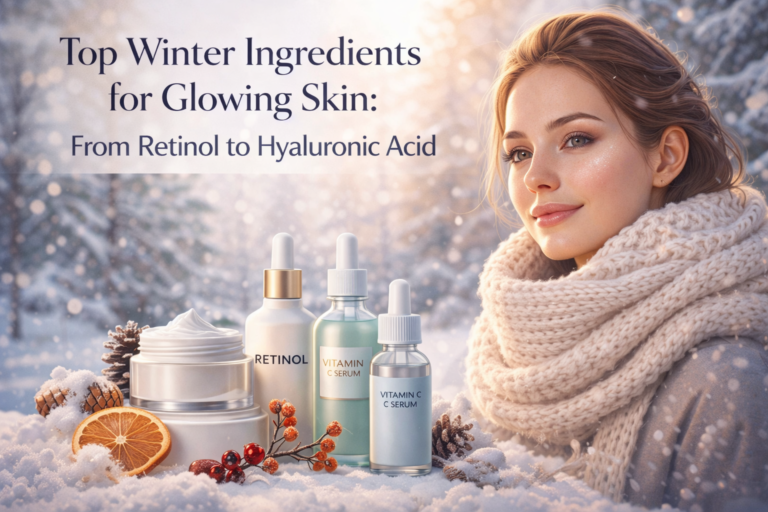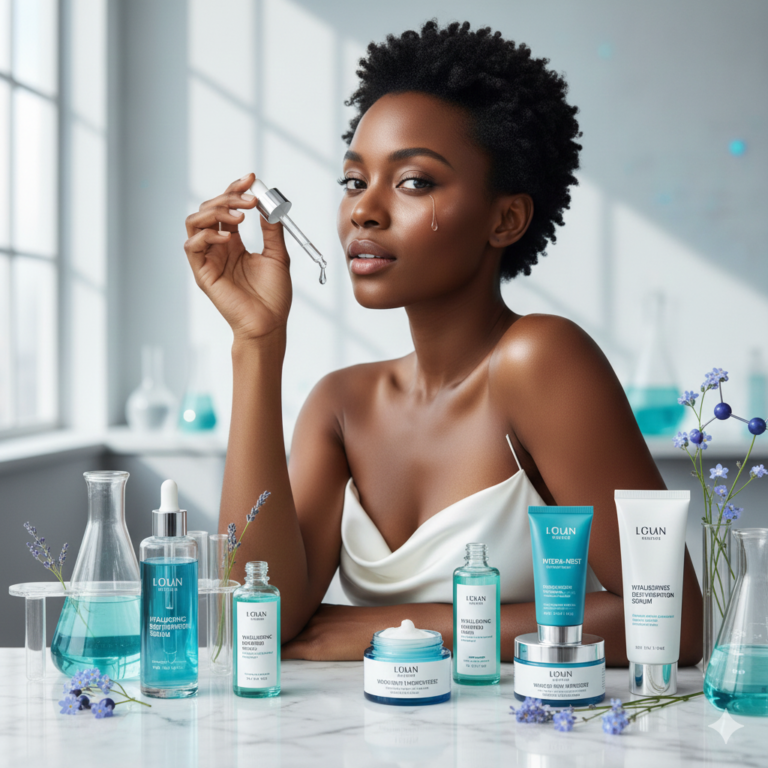How to Treat Dark Spots and Hyperpigmentation on Your Face
Dark spots and hyperpigmentation are among the most common skincare concerns. Whether caused by acne, sun exposure, hormonal changes, or aging, these patches of uneven skin tone can be frustrating and stubborn.
The good news? With the right ingredients, products, and consistency, you can significantly fade dark spots and restore an even, glowing complexion.
What Is Hyperpigmentation?
Hyperpigmentation occurs when the skin produces excess melanin, the pigment responsible for skin color. This overproduction leads to patches or spots that appear darker than the surrounding skin.
Common types of hyperpigmentation:
- Post-Inflammatory Hyperpigmentation (PIH): Left behind by acne or injuries.
- Melasma: Often hormonally triggered, common during pregnancy.
- Sunspots (Lentigines): Caused by prolonged sun exposure.
Top Ingredients That Fade Dark Spots
1.
Vitamin C
- A powerful antioxidant that brightens and inhibits melanin production.
- Best used in the morning under sunscreen.
2.
Niacinamide
- Reduces pigmentation and strengthens the skin barrier.
- Suitable for all skin types, including sensitive.
3.
Alpha Arbutin
- Gentle but effective lightening agent.
- Helps fade spots without irritation.
4.
Tranexamic Acid
- Ideal for stubborn melasma and deep pigmentation.
- Works well with other brightening agents.
5.
Azelaic Acid
- Fights both acne and hyperpigmentation.
- Safe for darker skin tones.
6.
Retinoids (Retinol, Tretinoin)
- Accelerate cell turnover to fade spots over time.
- Start slow to avoid irritation.
7.
Exfoliating Acids (AHA/BHA/PHA)
- Help remove pigmented surface cells.
- Use 1–3 times a week depending on tolerance.
Best Practices for Fading Hyperpigmentation
1.
Always Wear Sunscreen
UV exposure worsens existing pigmentation and causes new spots. Use broad-spectrum SPF 30+ daily, even on cloudy days.
2.
Be Consistent
It can take 6–12 weeks (or more) to see visible improvement. Stick to your routine.
3.
Avoid Picking or Squeezing Pimples
This leads to inflammation and post-acne marks that linger for months.
4.
Combine Ingredients Strategically
Use vitamin C + sunscreen in the morning and retinoids or acids at night. Don’t overload — introduce new actives slowly.
5.
Be Gentle
Harsh scrubbing, over-exfoliation, or too many actives can worsen pigmentation. Support your skin barrier with moisturizers and barrier-repair ingredients like ceramides.
Recommended Product Routine
Morning:
- Cleanser
- Vitamin C serum
- Niacinamide serum (optional)
- Moisturizer
- Broad-spectrum sunscreen
Evening:
- Cleanser
- Retinoid or exfoliating acid
- Alpha Arbutin or Tranexamic Acid
- Moisturizer
Professional Treatments That Work
If topical products aren’t enough, dermatologists offer clinical options:
- Chemical Peels: Use acids to remove pigmented layers.
- Laser Treatments: Target deeper pigmentation precisely.
- Microneedling: Stimulates collagen and enhances product absorption.
- Prescription creams: Hydroquinone, tretinoin, or compound formulas.
Consult a dermatologist to choose the right treatment for your skin type and concern.
What to Avoid with Hyperpigmentation
- Hydroquinone overuse (without medical supervision)
- Lemon juice or DIY bleaching remedies
- Skipping sunscreen
- Over-exfoliating
- Using too many actives at once
These can all worsen pigmentation or damage the skin barrier.
Internal Healing: Lifestyle Habits That Help
- Manage stress and sleep well to avoid hormone fluctuations.
- Eat antioxidant-rich foods (vitamin C, E, zinc).
- Stay hydrated to support skin regeneration.
- Limit sun exposure, especially midday.
Skin is a reflection of overall health. Supporting your body from the inside accelerates healing.
Conclusion
Treating hyperpigmentation is a long game, but with the right approach, it’s absolutely possible. Whether you’re dealing with acne marks, melasma, or sunspots, focus on proven ingredients, sun protection, and consistency.
And remember — you don’t need perfect skin to look radiant. A calm, healthy complexion is always beautiful.
Internal Links:
- Exfoliating Acids: AHA vs. BHA vs. PHA
- Serum vs. Moisturizer: What’s the Difference?
- How to Treat Redness and Irritation
- Best Moisturizers for Sensitive Skin

